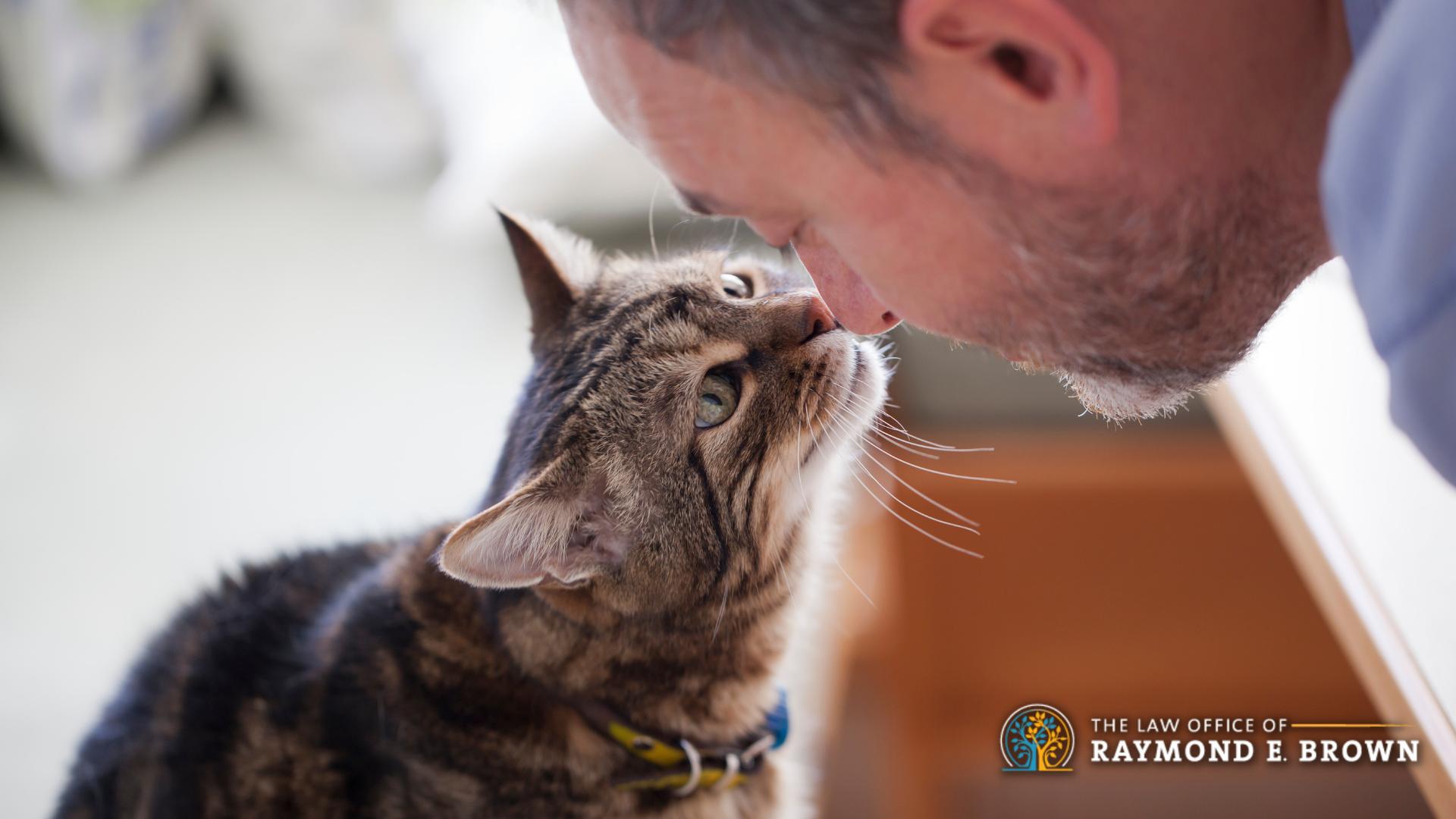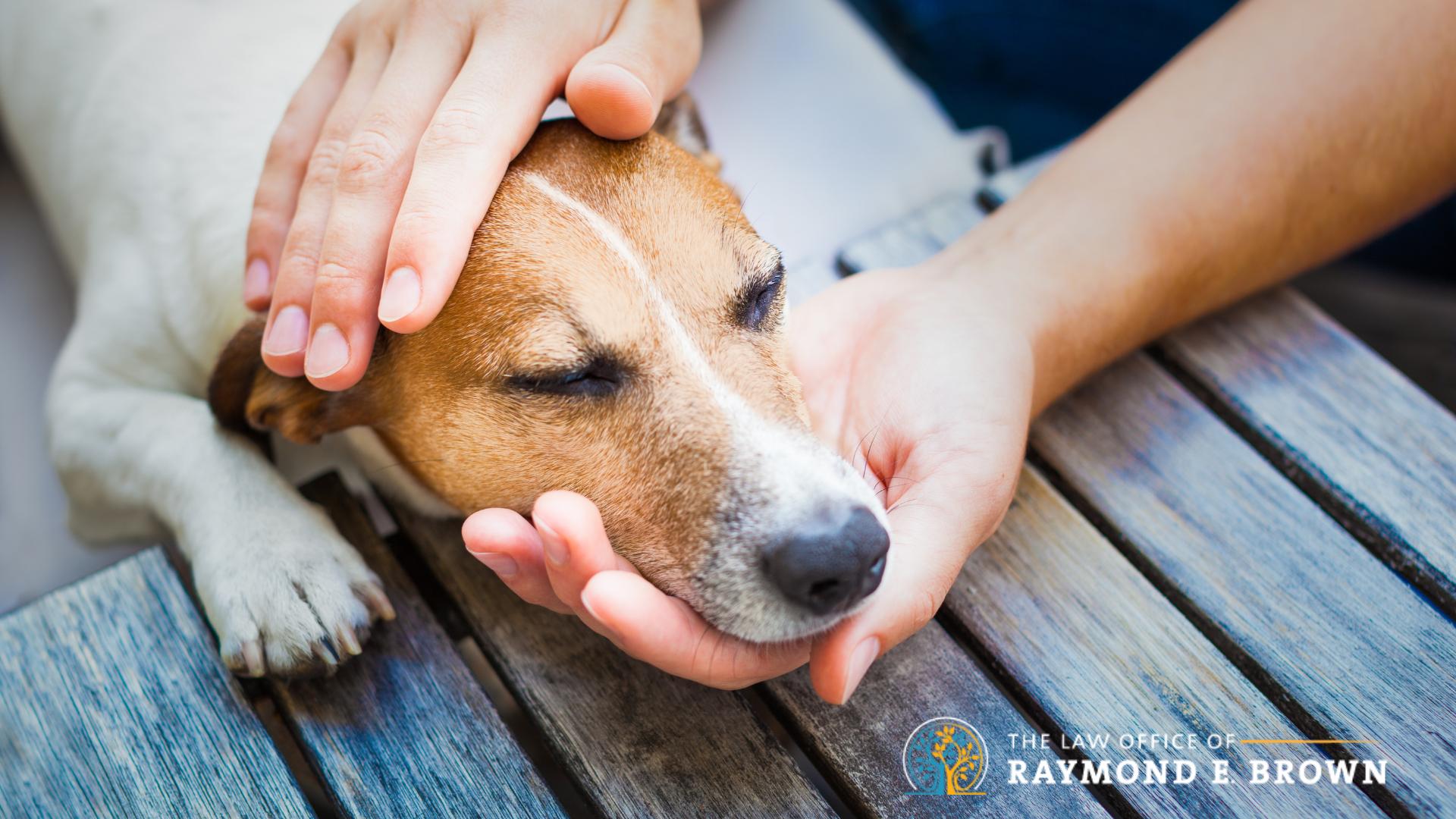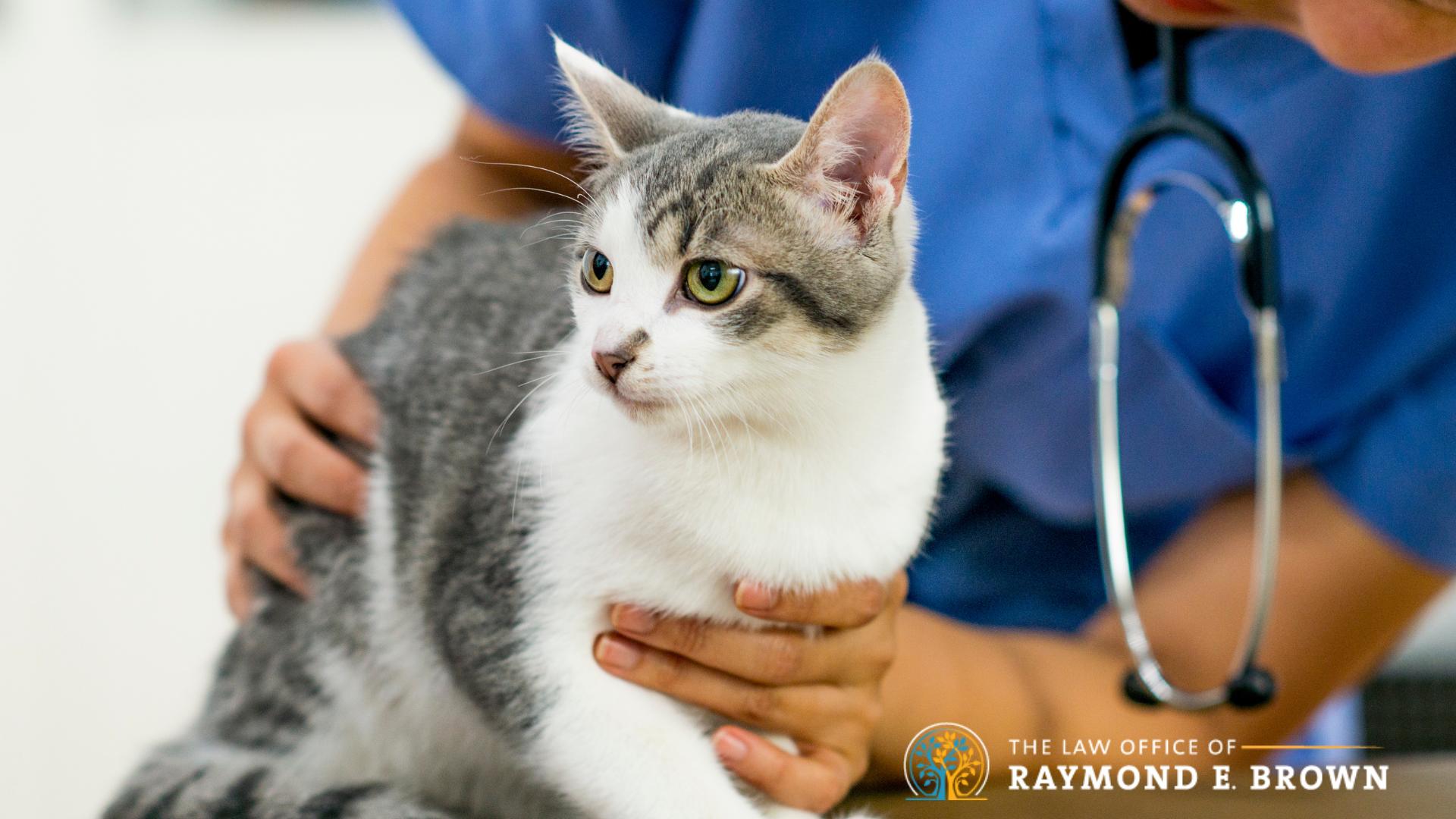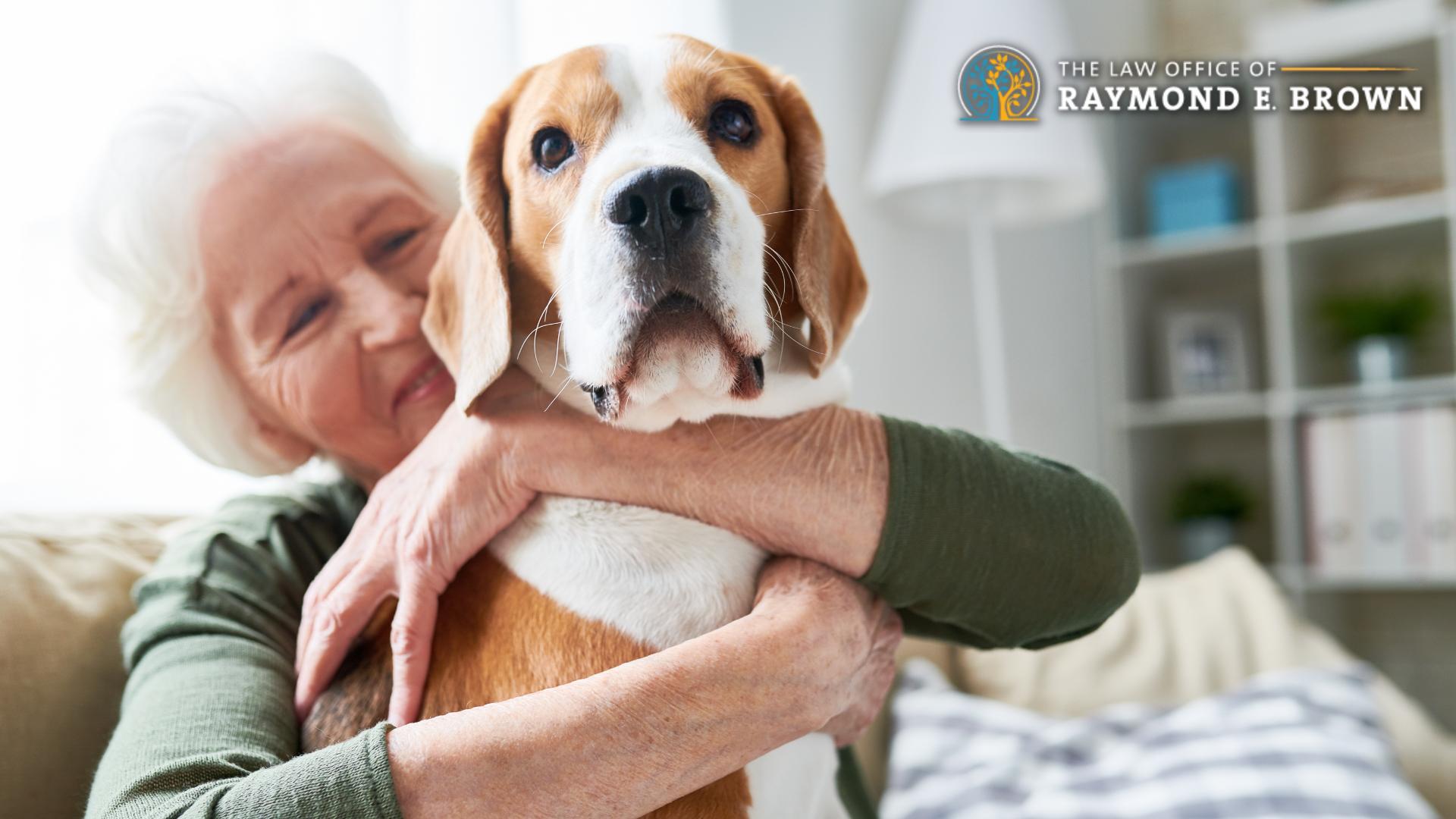In the past, owners would hope that a loved one would take over caring for their pets in the event of their passing, but unfortunately, pets that outlived their owners would often end up in shelters. A pet trust lets owners know that once they’ve passed, their pets will receive the same level of care.
Even though pets are considered property, it doesn’t mean that you can’t plan for their life after your death. Incorporating a pet trust into your estate plan will ensure that your pet is adequately cared for and has the funds to pay for food, vet expenses, and more.
If you’re concerned about your pet’s well-being following your death, the Maryland estate planning attorneys at The Law Office of Raymond E. Brown are here to help. This type of trust can be heavily contested by other family members and heirs, so it’s crucial to be as straightforward as possible.
To start creating a trust for your pet, contact The Law Office of Raymond E. Brown by calling (443) 554-9944 today.
What is a Pet Trust?
A pet trust is a legal arrangement that allows a pet owner to provide for the care of their pet animals once they’ve passed away. Many individuals include this trust along with their estate, but they can also be helpful if you ever become unable to care for your pets.
Every state allows these types of trusts, each with its own pet trust law. In Maryland, the Maryland Estates and Trusts Code § 14.5-407 provides the guidelines for creating a pet trust. It states that a pet owner can create a trust for the care of an animal or animals alive during the owner’s lifetime. When the last surviving animal passes, the trust will be terminated.
How Do Pet Trusts Work?
Here’s an example of how a pet trust might work:
Mike is an avid pet lover and has a beloved dog named Buster. Mike is concerned about what would happen to Buster if he were to pass away unexpectedly, so he decides to set up a pet trust to ensure that he is cared for after his death.
Mike creates a trust document that specifies how the trust assets will be used to care for Buster. He appoints a trustee to manage the trust assets and ensure the funds are used for Buster’s care. The trust document may include instructions about his feeding, veterinary care, exercise, grooming, and any other specific needs.
Mike also designates a caregiver to take physical custody of his pet and provide for his day-to-day care. The caregiver may be a family member, friend, or professional pet sitter or caregiver.
The trustee will disburse funds from the trust to the caregiver to cover Buster’s expenses, such as food, veterinary care, and grooming. The trust may also provide for any special needs that Buster may have, such as ongoing medical care or specialized diets.

Benefits of Pet Trusts for Pet Owners
A pet trust has many benefits for both the pet and its owner. As you’re planning your estate, you can create a pet trust for your pets so you can rest assured that your pet will receive proper care once you’ve passed. This can be especially important if your pet has certain health problems and requires specific care.
Since pets are considered property, you can’t leave money to your pet, but you can put money in the trust used for their care and maintenance. You can also name the pet’s caretaker in your trust. Your professional trustee will manage and dispense the funds to your pet’s caretaker that will cover the pet’s expenses that you have outlined in the trust.
Another benefit of creating a pet trust is that when an owner dies, there is a legal obligation to care for the pet until the pet dies. This means that if the caretaker does not adhere to the guidelines in the pet trust, they can face serious legal consequences. When this happens, the money will be returned to the owner’s estate.
How Long Do Pet Trusts Remain Valid?
All 50 states, including the District of Columbia, have their own pet trust laws. In most states, the trust will remain valid until the last surviving animal covered passes away. This means their offspring born after the owner’s death are not covered. A pet trust will usually expire if no living animal is covered by the trust.
In Maryland, pet trusts can continue for the lifetime of the pet or pets named in the trust document. Any remaining trust property at the end of the pets’ lives may be distributed to a designated beneficiary or a charity. This is why it’s essential to name a remainder beneficiary so they can distribute any remaining funds if surplus money is left once the pet passes.
Creating a Pet Trust
It’s important to note that a pet trust is a legal arrangement and requires careful planning to ensure it is effective and enforceable. Working with a qualified Maryland trust attorney can help ensure that your pet trust meets all legal requirements and provides for your pets’ needs according to your wishes.
When creating your pet trust, it’s crucial to be extremely detailed when outlining the caretaking instructions and how you want the funds used. Also, if you have one or more animals, you’ll need to name each animal that benefits from the trust. You want your pet trust to leave no room for questions, or your heirs can challenge it in court.
Working with an experienced estate planner can help you avoid vague language and ensure there are no misunderstandings about the trust once you’ve passed.

Funding a Pet Trust
Similar to other trusts, a pet trust is a legal entity that owns money, property, and other assets. During your lifetime, you fund the trust and leave assets to the trust in your last will and testament.
The Maryland estate planning attorneys at The Law Office of Raymond E. Brown can provide guidance on properly funding your pet trust. If there is too much money in your pet trust, it can be challenged by the courts, but if there’s not enough, your caretaker could run into problems.
Allocating Resources: Providing Financial Support for Your Pet’s Care
On average, a pet trust usually ranges from $15,000 to $20,000. However, if your pet trust includes horses or other animals with a longer life expectancy than dogs and cats, you’ll need to fund the trust with more money.
Most estate planning attorneys will determine an estimate of funds based on the average expenses for a pet during a year and will multiply that amount by the pet’s life expectancy. It’s also important to consider inflation and unexpected medical costs when planning your pet trust.
Ensuring Sufficient Funds to Cover Your Pet’s Lifetime Expenses
Those creating a pet trust must carefully estimate how much their pet’s care will cost annually. You can discuss this with your veterinarian if you’re unsure. Any pets with health problems need to be considered, as their expenses will be more than the average animal.
If you leave your pet too much money, your heirs can challenge it, which will most likely result in a judge reducing the amount. The most famous example of this occurring was when real estate mogul Leona Helmsley left her pet Maltese, Trouble, a $12 million dollar pet trust. Her grandchildren contested the amount, the ones who had been left out, and the court reduced the pet trust to $2 million.

Incorporating Pet Trusts Into Your Estate Plan
While all states allow these trusts, overall, pet owners can choose from three different types of trusts:
-
- Honorary Pet Trust: This type of trust leaves money to the person responsible for caring for your pet when you die. The caretaker will only receive funds from the trust when they’re taking care of the pet as instructed by the trust.
-
- Traditional Pet Trust: With this trust, the owner leaves their pet to someone in their will, similar to the honorary trust. However, the trustee only distributes funds when needed for the pet’s care per instructions in the trust. This removes any discrepancies for what the funds are actually being used for.
-
- Statutory Pet Trust: The owner leaves the pet to the trust. This type is most preferred since it avoids potential issues with inheritance. A statutory trust doesn’t require a human beneficiary. Instead, the trustee acts as the pet’s owner. It’s still important to name a caretaker with this trust in case the trustee cannot find a home for the pet. The trustee will dispense funds to the caretaker to cover the pet’s expenses as outlined in the trust.
Integrating Pet Trusts into Your Overall Estate Planning Strategy
When planning your estate, you’ll want to include instructions on how your pet should be cared for once you pass. The pet trust is a legally binding document that will hold those entrusted with your pet’s care legally responsible. It’s essential to name a caretaker in the trust and carefully detail the instructions on caring for the animal. This can include veterinarians, medical treatments, and even food.
Coordinating Pet Trusts with Other Provisions for Family Members
Discussing your pet’s trust with your family will help avoid any surprises once you’ve passed. Family members and friends who know about the trust will also be less likely to challenge the funds in court.
If you forgo creating a pet trust and simply ask a family member or friend to care for your pet after you’ve passed, they can receive the money and not be legally required to use that money for your pet. This is why creating a trust is essential so the caretaker can be held legally responsible for using the funds as directed in the trust. Many trusts will allow the professional trustee the option to appoint another caregiver if they determine that the original one is not providing adequate care.

For Help Creating a Pet Trust, Call the Annapolis Estate Planning Attorneys at The Law Office of Raymond E. Brown Today
If you’re ready to begin planning for your pet’s care following your death, contact The Law Office of Raymond E. Brown by calling (443) 554-9944 or reaching out online today. We can help guide you through the process of creating a pet trust and work to ensure that your beloved pet is well cared for following your passing.

